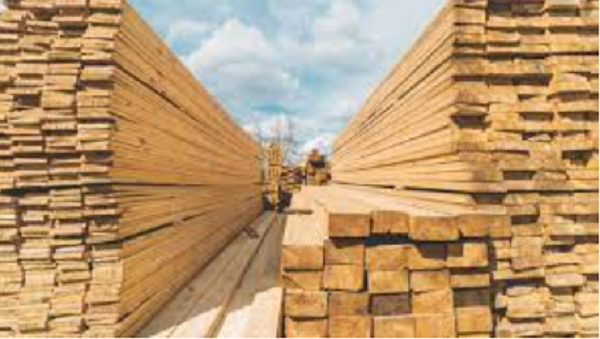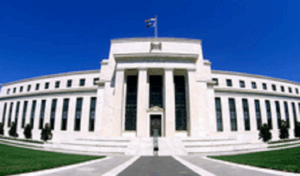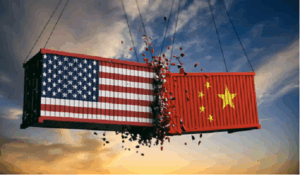‘It charges countervailing duties’: Canadian softwood producers highlight American investments as U.S. probes lumber import
Major softwood producers with head offices in Canada say they have accounted for more than half of the growth in capacity in the U.S. South over the past decade, highlighting their American investments as the Trump administration investigates lumber imports.
The U.S. South appeals to forestry companies because of the region’s abundant timber, the Canadian government said in a 57-page filing this month to the U.S. Department of Commerce in a bid to avert potential tariffs.
“Declining timber supply in Canada in recent years has effectively limited the ability of Canadian producers to supply the U.S. market’s demand for wood products,” Ottawa said in its submission.
Producers with head offices and sawmills in British Columbia filed their own submissions to draw attention to their diversification into the U.S. South over the years, including investments by West Fraser Timber Co. Ltd., Canfor Corp. and Interfor Corp.
The filings were in response to a March 1 executive order by U.S. President Donald Trump that launched a probe into the global softwood trade that could hit imports from Canada hard.
Mr. Trump’s order cited Section 232 of the U.S. Trade Expansion Act, which allows him to invoke national security concerns to potentially impose tariffs. The investigation into softwood and other wood products is scheduled to be completed by the end of this year.
In seeking to stave off tariffs, the Canadian government and several producers from Canada believe that the foray into the U.S. South should be viewed as evidence of them being aligned with the Trump administration’s “America First” trade and investment agenda.
In the latest round of the long-running softwood trade fight, which dates back to the early 1980s, the Commerce Department began imposing duties in 2017 on shipments of Canadian lumber.
“Canada trusts that in the context of this investigation, the Department will recognize our mutually beneficial trading and security relationships and find that imports of Canadian wood products do not impair, or threaten to impair, U.S. national security,” the government said in its filing.
However, the U.S. Lumber Coalition is arguing that new tariffs are necessary. “Putting in place Section 232 measures to protect the economic and national security interests of the United States would be highly beneficial to the U.S. softwood lumber industry,” coalition executive director Zoltan van Heyningen said in a submission this month to Commerce Secretary Howard Lutnick.
Over the past dozen years, Canadian-based companies have increased their presence in U.S. forests, where their production is exempted from duties.
But lumber that originates from sawmills in Canada is subject to an anti-dumping duty rate of 7.66 per cent and a countervailing duty rate of 6.74 per cent.
The U.S. levies anti-dumping duties because it claims Canadian producers sell softwood below market value, while it charges countervailing duties for what it sees as subsidized Canadian lumber.
The combined levies are slated to surge to 34.45 per cent by September, compared with the existing 14.4 per cent.
Benchmark lumber prices have fallen about 70 per cent since reaching record highs four years ago, but industry experts say tariffs could fuel inflation in softwood.
Canadian producers are worried that if new lumber tariffs hit 25 per cent, they could be stacked on top of the ballooning duties, with total levies eventually reaching nearly 60 per cent, placing further financial pressure on sawmills in Canada.
The Commerce Department’s administrative review into softwood markets in 2023 levied different duties on Canfor and West Fraser. Under the proposed new duty rates, Vancouver-based Canfor is scheduled to see its total levies soar to 46.48 per cent, up from the current 16.58 per cent.
Vancouver-based West Fraser Timber faces paying duties totalling 26.05 per cent, compared with the existing 11.89 per cent.
Last year, West Fraser ranked as the third-largest producer of lumber within the United States, according to data compiled by Forest Economic Advisors, a consulting firm. Interfor of Burnaby, B.C., ranked fifth and Canfor placed seventh. Within Canada, West Fraser was the top lumber producer last year, followed by Canfor.
Since 2017, Canadian producers have paid deposits of more than US$7-billion for U.S. duties.
West Fraser, which held its first-quarter conference call with analysts on Wednesday, has paid US$920-million in duties over the past eight years.
“Complicating matters, we are now dealing with the uncertainty of tariffs and their potential inflationary effects that have the potential to affect future demand for our wooden building products,” West Fraser chief executive officer Sean McLaren said during the call.
West Fraser posted a US$42-million profit in the first quarter, compared with US$35-million in the same period of 2024.
This article was first reported by The Globe and Mail














